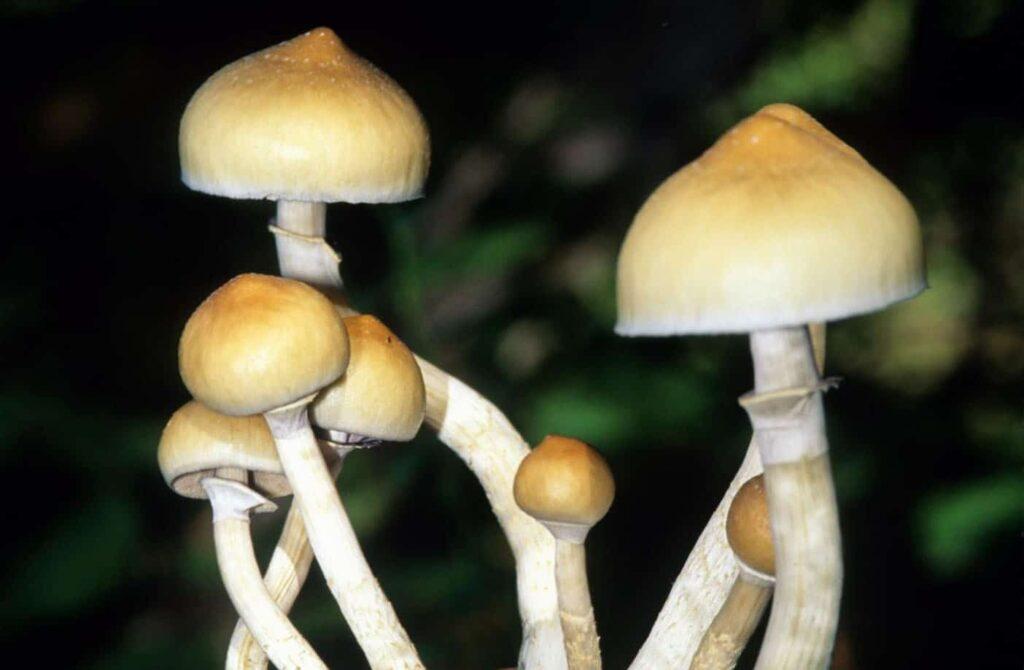Colorado’s Legislature has sent Senate Bill 23-290 (to legally regulate certain psychedelics) to the desk of Governor Jared Polis, who is expected to sign it into law.

(Photo credit: Paul Stamets)
On Saturday Colorado’s House voted 45 to 18 on Saturday to pass the proposal, which had already passed the Senate 25 to 11. However, amendments made in the House required the Senate to take up the measure once more. Yesterday the Senate did just that, voting 32 to 3 to concur with the House’s amendments. They then voted 24 to 11 to give the measure final passage and send it to Governor Polis.
Governor Polis has expressed support for the proposal, and is expected to swiftly sign it into law.
SB 23-290 was introduced in response to a voter-approved initiative that legalized psilocybin, ibogaine, mescaline, DMT and psilocyn, while tasking state lawmakers with establishing regulations. The proposal would place no specific possession limits on the personal use of the above-mentioned substances for those who are at least 21 years old.
Consuming psychedelics in public would not be a criminal offense, but is ticketable with a fine of up to $100.
Under the new law the state will issue licenses for testing facilities, cultivation facilities, product manufacturers and healing centers where certain psychedelics can be consumed. The measure would create the natural medicine advisory board (board) with their duties including “examining issues related to natural medicine and natural medicine product, and making recommendations to the director of the division of professions and occupations and the executive director of the state licensing authority.”
The bill’s official summary states:
- A person who is under 21 years of age who knowingly possesses or consumes natural medicine or natural medicine product commits a drug petty offense and is subject to a fine of not more than $100 or not more than 4 hours of substance use education or counseling; except that a second or subsequent offense is subject to a fine of not more than $100, not more than 4 hours of substance use education or counseling, and not more than 24 hours of useful public service;
- A person who knowingly cultivates natural medicine shall do so on the person’s private property, subject to area and physical security requirements. A person who violates this provision commits a drug petty offense and is subject to a fine of not more than $1,000.
- A person who is not licensed to manufacture natural medicine product and who knowingly manufactures natural medicine product using an inherently hazardous substance commits a level 2 drug felony;
- Unless expressly limited, a person who for the purpose of personal use and without remuneration, possesses, consumes, shares, cultivates, or manufactures natural medicine or natural medicine product, does not violate state or local law, except that nothing permits a person to distribute natural medicine or natural medicine product to a person for certain unlawful purposes;
- Unless expressly limited, a person who performs testing on natural medicine or natural medicine product for another person who is 21 years of age or older who submits for testing natural medicine or natural medicine product intended for personal use does not violate state or local law;
- A peace officer is prohibited from arresting, and a district attorney is prohibited from charging or prosecuting, a person for a criminal offense under part 4 of article 18 of title 18 involving natural medicine or natural medicine product, unless expressly provided by the bill;
- A lawful action related to natural medicine or natural medicine product must not be the sole reason to subject a person to a civil penalty, deny a right or privilege, or seize assets;
- A lawful action related to natural medicine or natural medicine product must not be used as the sole factor in a probable cause or reasonable suspicion determination of any criminal offense; except that an action may be used in such determination if the original stop or search was lawful and other factors are present to support a probable cause or reasonable suspicion determination of any criminal offense;
- The fact that a person is entitled to consume natural medicine or natural medicine product does not constitute a defense against any charge for violation of an offense related to operation of a vehicle, aircraft, boat, machinery, or other device;
- A local jurisdiction is prohibited from adopting, enacting, or enforcing a conflicting law;
- A person or entity who occupies, owns, or controls a property may prohibit or otherwise regulate the cultivation or manufacture of natural medicine or natural medicine product on or in that property.
The bill states that an act involving natural medicine or natural medicine product that is performed by a person:
- Does not solely constitute child abuse or neglect, or grounds for restricting or prohibiting family time;
- Does not solely constitute grounds for denying health insurance coverage;
- Does not solely constitute grounds for discrimination for organ donation; and
- Must not be considered for public assistance benefits eligibility, unless required by federal law.
The bill makes a person eligible to file a motion to have conviction records related to natural medicine or natural medicine product sealed immediately after the later date of final disposition or release from supervision.
You can find the full text of the proposal here.







